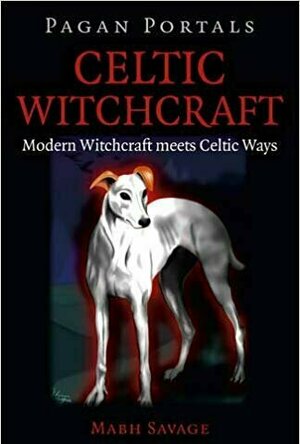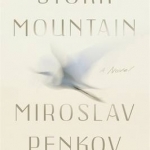
Two Orb Reel by Robert Aiki Aubrey Lowe
Album Watch
The modular maestro mounts his most varied solo release to date with the sci-fi knots and whorls of...
dance electronic
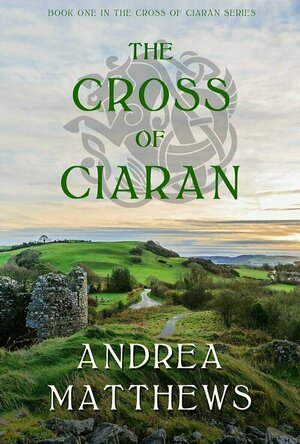
The Cross of Ciarán (The Cross of Ciarán #1)
Book
When a fifth century pagan priest is unearthed in Ireland fifteen hundred years after being...
Timeslip Historical Irish Celtic Romance
Cynthia Armistead (17 KP) rated Mindhealer (The Watchers, #5) in Books
Mar 1, 2018
<p>
<a target="_blank" href="http://www.goodreads.com/book/show/268186.Dark_Watcher">Dark Watcher</a> opens in Santiago City (aka Saint City), with a quartet of witches. Mindhealer is the only book that takes place outside of Santiago City, which seems to be the primary setting for all of Saintcrow's novels (from what I've read in the descriptions). </p>
<p>
Theodora, earth witch and healer, runs the Cauldron, an occult book and supply store. Mariamne Niege (water witch, prognosticator) and Elise Nicholson (fire witch) work for her in addition to being, respectively, a graduate student and a musician. Suzanne (air witch, I don't believe we ever learn her last name) is Elise's foster mother and their teacher, something of a high priestess to the little group.</p>
<p>The four women know that they're psychic and that "magick" is real. They don't know that they are "Lightbringers," that there are groups and creatures in the world that hunt them, or that a group called Circle Lightfall trains and sends out "Watchers" to protect (and recruit) Lightbringers in order to counterbalance the darkness in the world.
</p>
<p>Watchers are formerly wicked men with some psychic talents who have been given a chance to redeem themselves. They are bonded with a tanak, a dark symbiote that gives them supernatural speed, strength, healing power, and longevity. The tanak also makes it possible for them to sense darkness, but it causes the Watchers to experience pain whenever they're around Lightbringers.
</p>
<p>The catch is that for every Watcher, there is one Witch whose presence and touch will be intensely pleasurable instead of torturous. The hope of finding that one witch is what keeps each Watcher going, fighting and surviving horrific wounds for one chance at happiness.
</p>
<p>The use of the tired soulmate meme (though that specific word is never used) is annoying, and it detracts from what is otherwise a fairly original concept. The fact that there are only male Watchers, though there are a few (mostly queer) male lightbringers, is a bigger disappointment. The reasoning given is that women do not have the viciousness to kill without hesitation. That's simplistic, at best. Male lightbringers are also painted as weaker than females, and that, in combination with the pedestal upon which Watchers place Lightbringers, unbalances the novels.
</p>
<p>Theodora is the main subject of the first book. Mariamne is the focus of <a target="_blank" href="http://www.goodreads.com/book/show/268188.Storm_Watcher">Storm Watcher</a>. <a target="_blank" href="http://www.goodreads.com/book/show/268189.Fire_Watcher">Fire Watcher</a>, of course, is primarily about Elise. We meet a new air witch, Anya Harris, in <a target="_blank" href="http://www.goodreads.com/book/show/268190.Cloud_Watcher">Cloud Watcher</a>. And finally, Mindhealer is about Caro Robbins, whose brother plays a small part in Fire Watcher.
</p>
<p>The books should certainly be classified as romances first, although they do have very strong paranormal themes. Every book follows the classic romance novel formula. The fact that I kept reading despite my dislike of romances is a testament to Saintcrow's talent.
</p>
<p>I suspect that the author either is pagan, or is very familiar with pagan practices. The rituals in each novel are nicely done, and I wouldn't be surprised to hear people using some of the invocations used in Circle.</p>
<p>I do have to propose the Watcher drinking game. Take a shot every time there's any mention of treating a Watcher "dreadfully," and every time a Watcher moans about how unworthy he is to be in the presence of a Lightbringer. You'll be past noticing any formulae in no time!</p>
Goddess in the Stacks (553 KP) rated Crimson Bound in Books
Apr 30, 2018
In Rachelle's world, The Forest is the dominating theme - it encroaches on villages and towns, sending "woodspawn" to attack people, and Forestborn to turn more humans into bloodbound and ultimately Forestborn. Humans are sheep to The Forest; prey to the Forestborn. Once a Forestborn has marked a human, they have three days to kill someone or they will die. If they kill someone, they become bloodbound - an intermediary step before they become completely Forestborn. Bloodbound have increased strength, resilience, and fighting skills, so the King has extended an offer to Bloodbound - even though they are known murderers, since they had to have killed someone to gain their powers - he will grant them clemency in exchange for their service to the realm. Guard the people from the woodspawn, the mindless monsters the Forest sends to attack people, and he'll let you live.
So Rachelle is a Bloodbound, bound to the King. Unlike most, though, she still believes in some of the old pagan stories about The Forest and the Devourer - the ancient evil driving the Forest's predatory ways. The book is about her quest to stop it from coming through into their world and destroying everything. There are twists and reveals that I cannot mention here, but it is an AMAZING piece of world-building and myth and I LOVED IT.
I also discovered she has several short stories post on her website so I'll be binge-reading those for a while!
This book - and anything by Rosamund Hodge - is pure magic. If you like dark fairy tales, you can't do better than this.
You can find all my reviews at http://goddessinthestacks.wordpress.com
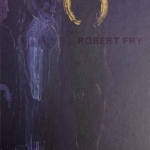
Robert Fry
Jane Neal, Anthony Fry, Alfred Kornfeld and Anne Langmann
Book
The paintings and etchings of Robert Fry (b. 1980, London) confront viewers with an engaging...
Heather Cranmer (2721 KP) rated Summer's End in Books
Jun 7, 2018
As a fan of horror, I thought I'd end up loving this book. However, that wasn't the case. It was an okay read, and I use that term loosely.
Lisa Morton is a horror author who knows a vast amount about Halloween, as in she knows where the tradition started and all the variations. When she gets an email from a university professor saying they found a 1,500 year old Celtic manuscript, she's a bit skeptical. However, she decides to visit the professor and see what he has to say. After translating the manuscript, the professor is found dead. Could this be the work of the manuscript that spoke of the Sidh? It's up to Lisa and Conor ó Cuinn, an Irish archaeologist who found the manuscript, to save the world. But will they be in time?
I'm not a fan of the cover at all. I'm not sure if that's supposed to be a Sidh or not. I have no idea. All I know is that the cover never really pulled me in.
As for the title, it makes me think more of a love story than a horror story. Saying that, one of the translations of Samhain is summer's end according to the book, so the title does fit in with the book.
I thought the world building was alright. I really didn't find any flaws with it. The setting is a university office and an apartment, so nothing too exciting. I though the author did a fantastic job of making the Sidh feel real and like this could actually happen. However, the ending lets the world building down. (This next sentence may be slightly spoilerish). We're led to believe that the world will be destroyed if Bal-sab (the god of death) isn't destroyed. Well, I don't want to give it away too much, but yeah, it's very anti-climatic.
The pacing is extremely slow at the beginning. I was considering adding this title to my DNF (did not finish) pile. For whatever reason, I decided to carry on. Luckily, the story did improve and picked up quickly which meant I was able to finish this book.
The plot was interesting enough. It's told from the author's point of view (although this book is a work of fiction), and she even throws in titles of her other books along the way. I did like the whole Celtic/Pagan mythology throughout the book. I also really enjoyed the little footnotes throughout the book. Anyway, the protagonist of the story needs to translate a Celtic manuscript and save the world. While, it was an interesting premise, I felt that it was poorly executed due to too much info dumping, and what I felt was too much self-promotion for the author's other works.
I felt that the characters were just too run of the mill. They weren't written poorly, but they weren't written well either. I felt that maybe some back story for the characters, especially the main character, would've helped me relate to each character, but I just found myself not really caring what happened to them. I just couldn't relate at all, and believe me, I did try, but all the characters felt too monotonous for my liking. I would've liked it if at least one character had some sort of personality instead of feeling like a cardboard cutout.
The dialogue never seemed forced, but it did feel a bit stale. As I've said before, there was way too much info dumping for my liking especially towards the beginning of the book. The info dumping isn't quite so bad once the story progresses though. As for swear words, there are a few, but it's not too bad.
Overall, Summer's End by Lisa Morton is an okay (again, I use this word loosely) story. It was a fantastic idea but poorly executed, I think.
I'm on the fence with whether or not I'd recommend this book. I'd just say to read it yourself and come to a decision especially if you're into Celtic/Pagan mythology. I'd say the age group it would best fit would be those aged 16+.
I'd give Summer's End by Lisa Morton a 2.5 out of 5.
(I received a free ARC print copy through LibraryThing's Early Reviewers for a fair and honest review).
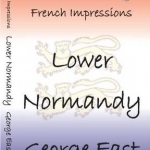
Lower Normandy
Book
The sixth in the popular French Impressions series, taking the form of a personal travel narrative...
<img src="https://i1.wp.com/diaryofdifference.com/wp-content/uploads/2019/07/Book-Review-Banner-9.png?resize=1024%2C576&ssl=1"/>;
<b><i> DID NOT FINISH </i></b>
If you have been following my book journey for a while, you will know what I’m about to say. I don’t have rules about reading a certain book, but there is one thing I always stick to:
<i>I give a chance to every book that comes my way. If I have it in my physical library – it will be picked up at some point. </i>
Pagan Portals – Celtic Witchcraft is a book I won from a giveaway. It is not usually a genre I go for, but I do love witchcraft and spells. It intrigues me.
This book focuses on the Celtic Witchcraft and explains what it means to firstly, be a witch and what Celtic culture is all about – the beliefs, the customs etc.
After reading 30 pages, I decided that this book is not for me. This is, therefore, the second ”Did Not Finish” for 2019.
It starts very slow, gives detailed information of all things Celtic and the history of Celtic Witchcraft. It was a very boring introduction for me.
Then I got involved in a few life lessons without any added benefit really, and a full overview of a moon cycle followed by a detailed report on how the author’s behaviour changed during all these phases. This might be something you are interested in, but I felt like wasting my time reading someone’s daily moon diary. This was the moment I decided to close this book and move on.
I can understand why some might like this book, and you are valid! I am aware a lot of you will love and appreciate this book for what it is. And that’s okay. I just don’t seem to fit into this group. I love learning about witchcraft, witches and find out new things, but this book didn’t give me what I was looking for.
<b>Better luck next time!</b>
<a href="https://diaryofdifference.com/">Blog</a>; | <a href="https://www.facebook.com/diaryofdifference/">Facebook</a>; | <a href="https://twitter.com/DiaryDifference">Twitter</a>; | <a href="https://www.instagram.com/diaryofdifference/">Instagram</a>; | <a href="https://www.pinterest.co.uk/diaryofdifference/pins/">Pinterest</a>;
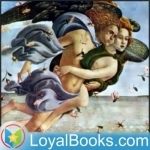
Myths and Legends of Ancient Greece and Rome by E.M. Berens
Podcast
Silver footed, fair haired Thetis, Ares the God of War, Nike the Goddess of Victory, The Furies and...
Hazel (1853 KP) rated Stork Mountain in Books
May 25, 2017
Bulgarian-born, short storywriter Miroslav Penkov has turned to full-length novels with this captivating book, Stork Mountain. Set in the Bulgarian Strandja Mountains on the border of Turkey, he explores religion, mythology, the past and the present in a society affected by long-term political unrest.
The narrator, a young man who remains nameless throughout, relocated to the United States of America as a child after the fall of Communism. Now he returns to his home country to find his grandfather, an elderly man he lost contact with three years ago. However his real motive is purely for self gain: to sell his section of the family land in order to pay off student loans and his rising debt.
Naturally, things do not go according to plan. The protagonist finds his grandfather hiding in the village of Klisura, a place divided between the Christians and the Muslims. He also discovers that there is no longer any land for him to sell, making his journey fairly pointless. Instead of returning to the Western world, he stays in his grandfather’s house and, very slowly, begins to learn the truth about his family’s past, the man his grandfather once was, and the superstitious pagan activities still affecting some of the village’s inhabitants today.
Stork Mountain is full of the history, folklore and mythology of a little known about European country. Although ultimately a contemporary novel, there is a lot to learn about events that led up to southern Bulgaria’s current condition. As well as being informative, Penkov plays with his readers’ hearts by including a Romeo and Juliet-esque relationship between the narrator and a Muslim girl, and also reveals a similar affair between a younger Grandfather and the girl of his dreams.
Books containing politics are often reserved for those with particular interest in the topic, however Stork Mountain is suitable for a much larger audience. The inclusion of Bulgarian folklore adds a dark fairytale-like quality to the story; and the romance, something for the reader to latch onto.
On reading the blurb I jumped to the conclusion that this book would be boring. I was wrong. Whereas stories with similar themes can be hard going, Stork Mountain was fast paced and easy to read. There were a few confusions about who was talking or whether the narrative was about the past or the future, but these issues may be something that is improved upon as the author finds his groove in full-length novels.
Even if, like me, you have prejudged this book to be boring, I urge you to give it a go. You may find yourself pleasantly surprised. Miroslav Penkov definitely has a future in the world of literature.

